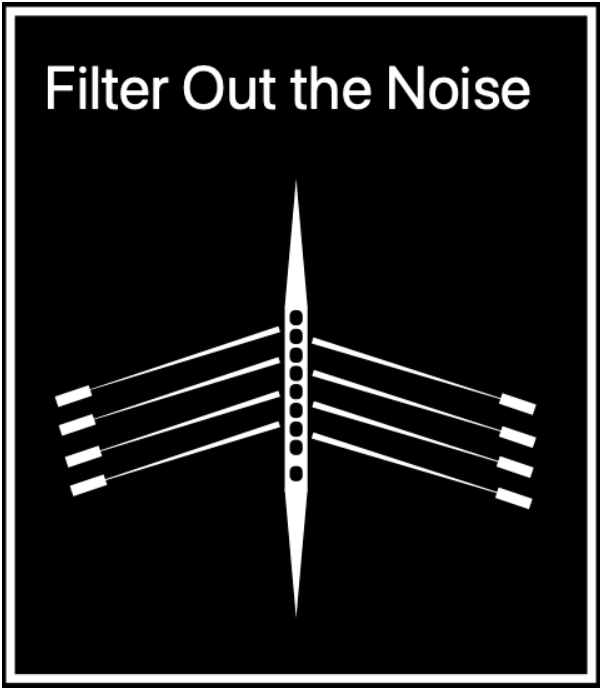Filter Out the Noise
“In rowing as in life, there are competitors and there are racers. The competitor works hard and rows to his limit. The racer does not think of limits, only the race.”
– Jim Dietz
Olympic rowing is Great Britain’s most successful event. From 1900, when the sport debuted, to 2020, the Brits have medalled 70 times, including 31 gold medals. But coming into the 2000 Sydney Olympics, one boat was in a slump – the men’s eight. The crew hadn’t won gold since repeating as champions in 1908 (London) and 1912 (Stockholm.) They hadn’t made the podium since taking silver in 1980 (Moscow). No one expected them to medal, much less earn gold.
“We realized that if we continued to do what we’d done for the previous however many years,” stated British rower Ben Hunt-Davis, “we’d continue to get the same results.”

They chose to pivot and take a new approach. They started asking a simple question around everything they did in the two years they trained for the Olympics: “Will it make the boat go faster?”
Should we go to the pub after practice? Should I stay up late? Should we do another round of 500 meters on the rowing machines? Should I read this book or watch this show? All these questions found their answer in another question: “Will it make the boat go faster?” Often the answer was obvious.
The 2000 men’s rowing crew would win gold in the Sydney Olympics despite years of disappointing results. They won gold using a simple question to filter out the noise. Anything that didn’t make the boat go faster was cast aside. Anything that made the boat go faster became their focus.
My son Gus rowed in high school and competed in men’s eights. For the crew of an eight to compete, they must operate in perfect harmony. The coxswain steers, cheers, and coaches from a seat in the stern. The second oar, the “stroke,” sets the tempo. All eight oars must leave and enter the water in unison. Shoulders and legs synchronized to pull evenly. All this over a 2,000-meter course. None of this is possible without endless hours of grueling training. And every rower must match the commitment of others for the boat to achieve “swing” in a race. Swing happens when everyone is rowing in such perfect harmony that not a single stroke is out of sync. It’s rare. It’s how gold medals are won. In the case of the 2000 British team, they achieved swing through two years of asking and answering “Will this make the boat go faster?”
A great question can serve as a compass for how you invest your time. Will this get me closer to my goal? Does this align with my values? Will this make me stronger? These “compass questions” work for individuals, teams, and companies with a clear, singular priority. When we lack clarity or a true north priority, we can justify any course of action. Robert Brault put it well when he wrote, “We are kept from our goal not by obstacles but by a clear path to a lesser goal.”
The first step is always clarity. What’s your ONE Thing? The next is to craft a compass question to filter out the noise and stay focused on what matters.
One question to ponder in your thinking time: How can I build the habit of asking my compass question to stay on track?
Make an Impact!
Jay Papasan
Co-author of The One Thing & The Millionaire Real Estate Agent

Leave a Reply
You must be logged in to post a comment.